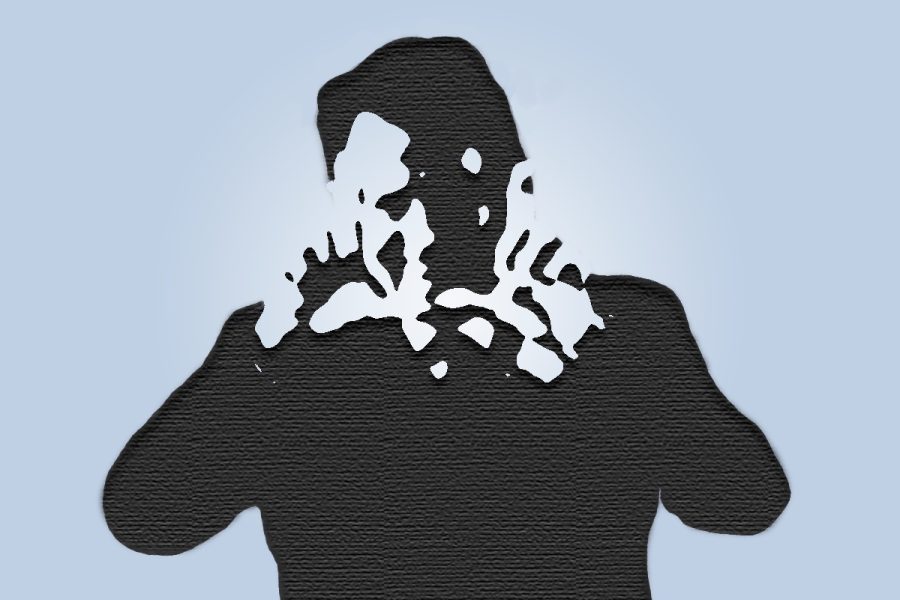The Controversial Presidency of Taylor Randall
(Graphic by Storey McDonald | The Daily Utah Chronicle)
February 22, 2022
In August 2021, Taylor Randall was elected president of the University of Utah, taking the place of Ruth Watkins.
Randall is the former dean of the U’s David Eccles School of Business, making him what is referred to as an internal hire. He ran against two other candidates, neither of whom had previously been associated with the U.
“The institution knew that there were so many different issues that were transpiring internally,” said U senior and former Director of Diversity for the student body Ermiya Fanaeian. “They knew there were so many different issues that they were being critiqued on by the public, yet they still decided to appoint someone who was a part of the internal workings of the institution. I think that was a horrible, horrible decision of theirs. ”
This feeling of discontent for an internal hire is not exclusive to current U students.
“Dr. Randall was a poor choice for the president of the university,” said U alumni Eric Kenney via email. “Given the problems that arose out of Dr. Watkins replacing Dr. Pershing, I think an external candidate with a different perspective would have served the University well.”
Many of the complaints made by students and other members of the U’s community relate to the 2018 murder of U student Lauren McCluskey, which occurred during Watkins’ presidency, and how the U and Watkins responded.
“[Watkins] could have very much held the police who did nothing about Lauren’s murder accountable,” Fanaeian said. “She did not do so. I mean, there was a woman who was murdered on campus under her watch, and she did nothing about it. In the midst of it all and in the storm coming her way, with all the protests against her, she decided to leave the institution, but the fact is, just because you leave the institution does not mean these issues no longer exist.”
Fanaeian said not only did Watkins not hold the police responsible for McCluskey’s murder, but she also celebrated the officers. According to Fanaeian, Watkins was aware of the issues but still defended the institution above the students.
Individuals, such as Fanaeian, feel that by electing Randall — who has been affiliated with the U for over a decade — institutional issues will not be solved.
“He’s been in the institution for a long, long time,” Fanaeian said. “He’s never been critical of the institution [and] he was never critical of Watkins’ decisions. He held a very significant role in the institution as well. He was the dean of one of the most populated colleges on our campus. So, he had the power to do these things, and he decided not to. To suggest that just because he got a new title, that would change, it’s just, you know, not true.”
Chris Nelson, the interim chief marketing and communications officer for the U, said Randall believes in the benefits of listening to multiple perspectives before taking action.
“Less than two weeks after being selected as president, President Randall formed an internal transition team to improve university outcomes,” Nelson said in an email comment. “The Operation Bold Transition Team — named after the president’s desire for the university to be bold in its aspirations — included a broad cross-section of university expertise, including deans, department chairs, students, hospitals, athletics, staff and other areas.”
Nelson said this transition team proposed 16 strategic objectives to improve the U in various areas, including campus safety, sustainability, equity, diversity and inclusion.
Nelson also mentioned that Randall lead 24 “Listen and Learn” forums to talk with members of the U community about their priorities and issues they face. Randall also recently created the Presidential Commission on Equity and Belonging to address the harms of racism in the U community.
Kenney said they feel that because Randall is an internal hire, he cannot resolve these issues.
“The U faces several challenges around safety on campus, [including] how it handled the murder of Lauren McCluskey and a changing student body demographic,” Kenney said. “I believe Dr. Randall to be too narrow-focused, especially coming from one of the least diverse and least academic departments on campus.”
Many people were hoping that electing a president previously unaffiliated with the U would bring a much-needed new perspective to the school.
“The reason the school should hire someone outside of the institution is that, you know, the school has not tried innovative ideas to tackle the most crucial issues on campus, including violence against women [and] so many different institutional issues that [the U] gets critiqued on,” Fanaeian said. “They could have chosen someone that had new, innovative ideas, that could have tackled these very issues. That’s definitely something that somebody who’s outside the institution could have done. They could have brought new ideas that we have yet to implement.”
Additionally, Kenney believes Randall’s victory adds to a lack of diversity among U leadership.
“Universities, much like many large corporations, have a serious lack of diversity in the C-level suites,” Kenney said. “Diversity brings about new ideas. Utah in general is changing, as is the demographic makeup of the student body. A white male is not new for the U, and definitely not the right person to lead the U.”
With his critics, however, Randall also has supporters.
“I believe that President Randall has a commitment for equity, diversity and inclusion,” said U junior and accounting and information systems major Luis Ramirez. “I saw on social media [that] that was one of the biggest concerns among people, but I believe that he has that commitment, and will continue to implement that with initiatives and programs at the University of Utah as a whole.”
Ramirez is a part of The First Ascent Scholars Program, which began during Randall’s time as dean. It sets out to help first-generation, low-income students from diverse backgrounds be able to complete a college education. Ramirez said this is one of many programs led by Randall that have helped him during his time studying in the David Eccles School of Business.
“During [my time] in the business school, President Randall was the dean, and so all those programs were led by him,” Ramirez said. “I’ve had such a great experience in the business school.”
Ramirez is also a Presidential Intern in Randall’s office, a position allowing students from diverse disciplines to learn about the inner workings of higher education. Through his internship, he and other student interns have had two meetings with Randall.
“In those meetings, he reinforced that he has a commitment towards equity, diversity and inclusion,” Ramirez said. “[He said] his biggest goal is to have the University of Utah become a top-ten public institution, and with that, there’s a lot of negative implications.”
According to Ramirez, Randall listened to his concern that if the U became a top-ten-ranking public institution, many students will come to study from out of state and even internationally, raising an issue with affordable housing.
“I told him that it’s going to be hard for low-income families to live in Utah if the U does become a top-ten public institution,” Ramirez said. “But he said that he has a commitment to ensure that despite the U growing in rankings and being more renowned, he’s going to also alleviate the negative implications.”
Ramirez said he thinks many people made criticism about Randall because he is a white, cisgender, straight male.
“They assume that he doesn’t have this commitment towards equity, diversity and inclusion, but I believe he does,” Ramirez said. “I understand the concerns people had on social media towards President Randall, but I think they thought that initially because of his appearance, and not because of their knowledge of his work in the business school.”
Fanaeian said there are many commitments that still need to be made within the U’s institution.
“I would say, let’s start with focusing much funding on actual security measures for people who are escaping intimate partner violence,” Fanaeian said. “That includes not making housing on campus so inaccessible [and] allocating money for housing off-campus for those victims to escape such violence. Allocating money for any kind of security measures that allows these victims to escape such violence and survive such violence.”
Fanaeian is among students who are wary of Randall’s election, unsure if he will be able to carry out such commitments.
“These are very much the priorities of the president [and] should be the priorities of the president,” Fanaeian said. “Randall has a lot of these powers, and ultimately he signs off on these things. He’s had the chance to do these things, [and] he has yet to do so. I don’t know if I have a trust in him to do so.”
With the election of Randall, those who are a part of the U’s community are also critical of the institution itself.
“My experience has been very much the fact that the U is great because of the communities that we’ve built here on campus,” Fanaeian said. “But the U as an institution and the power that is held by the faculty and the administration, that’s not so great. They’re not doing so well for the community that makes up this institution.”
According to Fanaeian, for the U’s institution to work better with the U’s community, there must be a commitment to change made by the U’s leadership.
“It starts with asking the question of, you know, will they make the commitment and what’s stopping them from making such a commitment,” Fanaeian said. “It starts with those questions rather than being hopeful. For them, there can be no hope, if there is no real material change.”










Bring Them Young • Oct 15, 2023 at 12:46 am
Randall is Gomer Pyle. The only reason he is in this position is because of his dad and grandfather.
What a dorf!